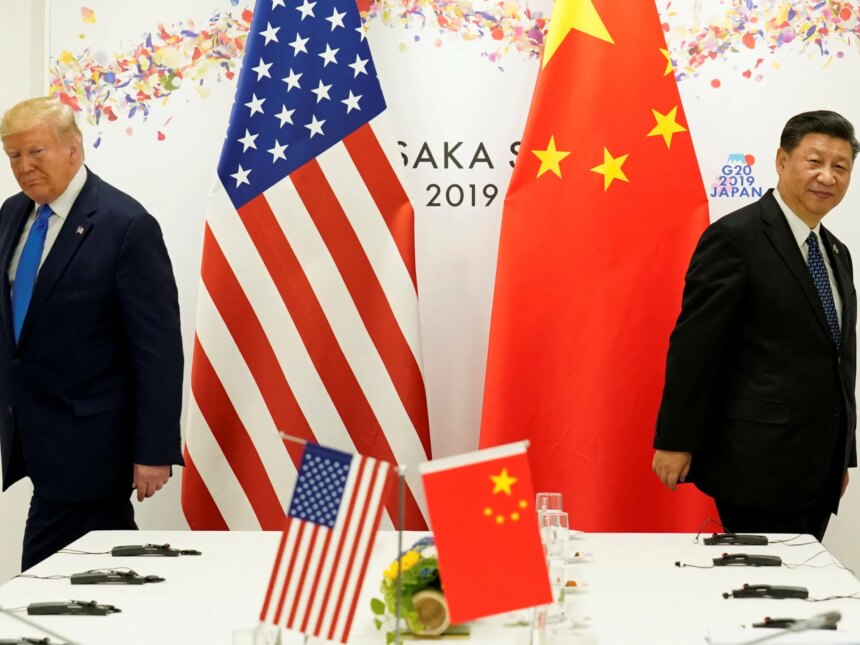In a bold response to escalating trade tensions, Beijing has firmly rejected claims that its recent export restrictions constitute a hostile act, labeling the tariff actions taken by the United States as hypocritical. China’s Ministry of Commerce issued a detailed statement addressing the new tariffs imposed by U.S. President Donald Trump, describing them as a product of double standards.
The backdrop of the dispute includes Trump’s recent declaration of a 100% tariff on Chinese exports, coupled with new restrictions on critical software, set to take effect on November 1. This move followed China’s decision to impose export controls on rare earth elements—vital resources in the production of a wide variety of technologies, including smartphones, electric vehicles, and military hardware. The Ministry indicated that these export controls were a direct response to perceived provocations by the U.S., especially after aggressive measures such as blacklisting Chinese companies and imposing additional port fees on vessels linked to China.
In the statement, Chinese officials emphasized their intentions not to escalate the situation but asserted their readiness to defend China’s interests. “We do not want a tariff war but we are not afraid of one,” the Ministry remarked, highlighting a stance focused on negotiation over confrontation.
China’s controls on rare earths represent a significant leverage point in the trade negotiations, considering the nation’s dominance in the production and processing of these materials. Prior talks in Madrid had aimed at alleviating trade tensions, but recent developments have hindered progress. The Ministry articulated that the actions taken by the U.S. have “severely harmed China’s interests” and disrupted the possibility for constructive economic dialogue.
The friction in U.S.-China relations has raised concerns about an upcoming summit between Trump and Chinese President Xi Jinping at the Asia-Pacific Economic Cooperation summit in South Korea, which would mark their first in-person meeting since Trump assumed office again. The heightened hostilities could jeopardize this crucial diplomatic interaction, further complicating the already tense atmosphere.
Markets have responded to the renewed trade hostilities with unease, particularly affecting major technology stocks and highlighting the concerns of businesses that rely heavily on Chinese dominance in rare earth processing.
On a slightly different note, Taiwan’s economy ministry has indicated that the new restrictions from China may not have a significant impact on the island’s semiconductor industry. The ministry clarified that the specific rare earth elements covered by the ban do not align with those used in Taiwan’s semiconductor production processes. Furthermore, Taiwan sources the majority of its rare earth materials from regions such as Europe, the United States, and Japan, suggesting a degree of insulation from the immediate effects of China’s curbs.






